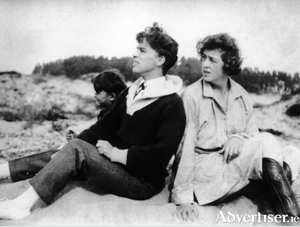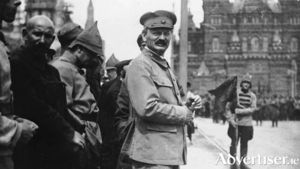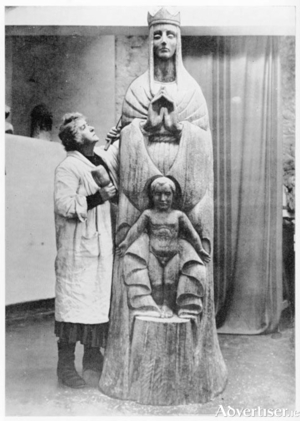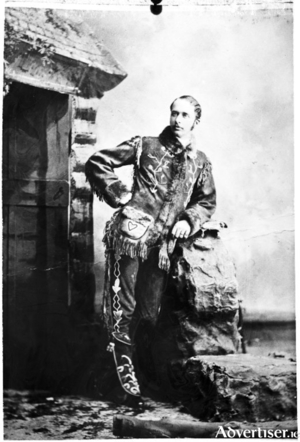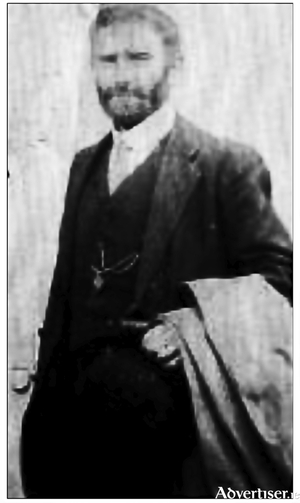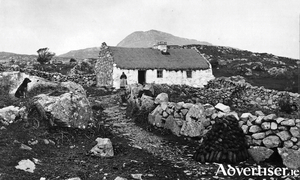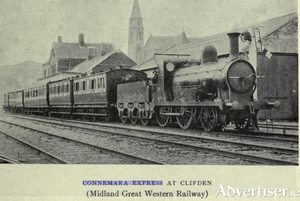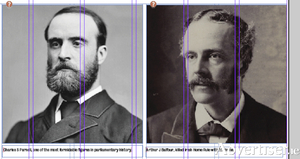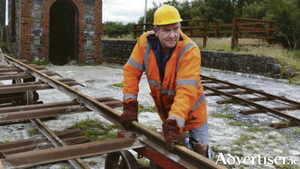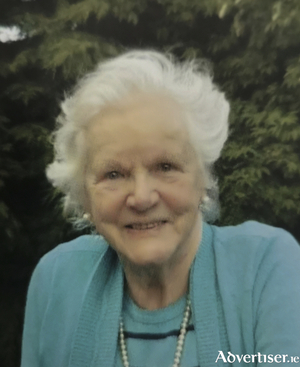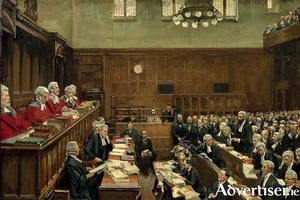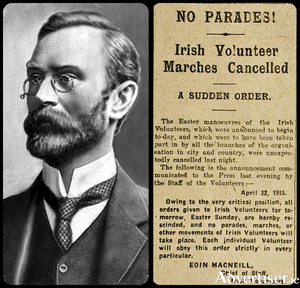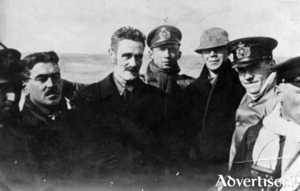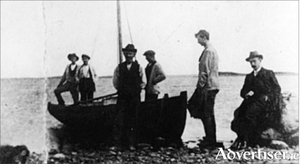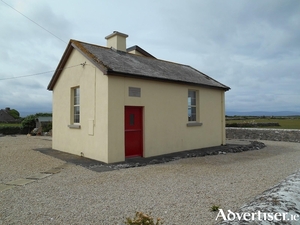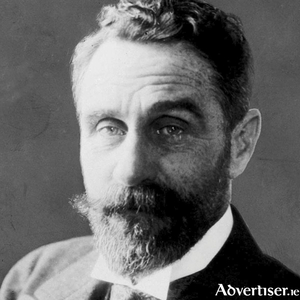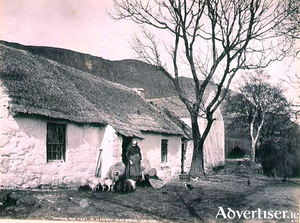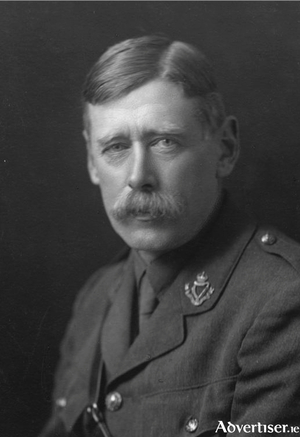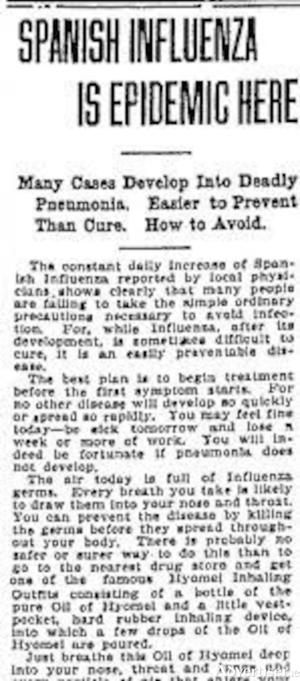‘Might you be Jackie Coogan’s brother?’
Wed, Jul 07, 2021
It was not only Winston Churchill who was cross and embarrassed at Clare Sheridan’s adventures in Moscow, London society was both alarmed and intrigued. It was surprised that a member of its upper class should have ventured alone into the viper’s nest. She was invited to balls and receptions mainly as a curiosity. One hostess told her outright that she was nothing but ‘a Bolshevik’, and a suspicion persisted that she was a spy, a fact that Clare did little to contradict. But despite a critical reception on the surface, her book From Mayfair to Moscow* was eagerly snapped up.
Read more ...How the Bolsheviks got one up on Churchill
Wed, Jun 30, 2021
Even among the supreme leaders of Soviet Russia in the 1920s there was fear. When Clare Sheridan, the sculptor who spent her latter years in Galway, was leaving the Moscow War Ministry late one night accompanied by the powerful head of the Red Army and Commissar for Military Affairs, Leon Trotsky, armed soldiers on the bridge at the Neva, stood out on the road, and stopped their car.
Read more ...‘How exciting it was to be a Catholic’
Wed, Jun 23, 2021
When Clare Sheridan bought Spanish Arch House in the late autumn of 1946, she was seeking refuge from an eventful life, to find peace and quiet to continue her sculpture, and needed time to give expression to her religious fervour. She had recently converted to Catholicism, and could not resist telling anyone who listened ‘how exciting it was to be a Catholic.’
Read more ...‘A charming if financially incompetent adventurer’
Thu, Jun 17, 2021
Travelling by rail to Clifden from Galway in the later years of the 19th century was supposed to take about one and a half hours, but it often took much longer. One of its great benefits was to bring anglers and shooters, ramblers and artists through the heart of Connemara, which it did very successfully. The train was quite happy to stop between stations to let people alight to follow their dreams, or to stay with friends who lived close to the railway.
Read more ...A magnificent man and his cycle machine
Wed, Jun 09, 2021
John Henry Bailey was a well known business man in Galway at the close of the 19th century. He was a rate collector and an auctioneer but was better known for his selling and repairing Morris cars from his garage on the east side of Eyre Square, on a site now remembered as the former Odeon Hotel. He also had the distinction of being the first man in Galway to ride a bicycle.
Read more ...All that is left is ruins and a photo album
Thu, Jun 03, 2021
Whether it was to defuse the call for Home Rule, or whether Chief Secretary Arthur J Balfour was genuinely moved at the shameful poverty that existed among the western counties of Ireland, his ‘walkabout’ among the people was generally very well received.
Read more ...Echoes of the American west as railroad gets under way
Thu, May 27, 2021
Once the Galway-Clifden railway route was agreed, pressure came from the chief secretary’s office for the Midland Great Western Railway to commence work immediately, and that ‘every able bodied man in Connemara’ was to be offered a job building the railway.
Read more ...How Balfour deflated the drive for Home Rule
Thu, May 20, 2021
In 1887 Arthur J Balfour, a quintessential English unionist, was appointed chief secretary of Ireland by his uncle Lord Salisbury, the Conservative prime minister. No one expected much from this man whose appointment appeared so nepotistic as to suggest he was an incompetent. He was far from that.
Read more ...Clifden railway - An outstanding engineering accomplishment
Thu, May 13, 2021
Pádraig Pearse’s first visit to Connemara was in 1903, when he was 24 years of age. He was sent there by Conrad na Gaeilge, a nation-wide Irish language movement, then gaining momentum year after year, to examine a group of young teachers from the Ros Muc area, to see if they were fit to teach Irish. When this young romantic man, already with an image of an ‘Irish Ireland’ in his mind, stepped from the train at Maam Cross station, he had a life-changing realisation that this was ‘a little Gaelic kingdom of its own’.
Read more ...Churchill lost patience, and simply turned off the tap
Thu, May 06, 2021
Because most people in Brigid Kavanagh’s farming community near Strokestown, Co Roscommon, did not have a radio in September 1939, no one knew that war was declared between Britain and Germany until some time later.
Read more ...Finding love in Ireland in the nineteen thirties and forties
Thu, Apr 29, 2021
The lot of a country girl growing up in rural Ireland in the 1930s and 40s was a lottery. If her family had a decent farm, and were relatively well off, she could go to university or train as a nurse, and could marry a prosperous farmer.
Read more ...Roger Casement’s failed appeal and humiliation
Thu, Apr 22, 2021
This remarkable painting, by Irish artist Sir John Lavery, is actually a portrait of Roger Casement on the last day of his appeal against his conviction for high treason and sentence of death, in July 1916. But where is he?
Read more ...MacNeill feared a bloodbath if unarmed Volunteers came out
Thu, Apr 15, 2021
‘How did the Germans receive our plans? With polite incredulity’…..wrote Liam Ó Briain, the Galway professor who took part in the 1916 Rising, ‘ignorant of Ireland they viewed us as forlorn visionaries, and even doubted whether we would be rash enough to challenge the armed might of England’.
Read more ...Ireland could have been a world war battlefield
Thu, Apr 08, 2021
In the early hours of Friday April 21 1916, two days before the Easter Rising was scheduled to begin, a German submarine surfaced off the Kerry coast, and three men set out for the shore in a small dinghy. On board were Sir Roger Casement, and two other men Robert Monteith and Daniel Bailey. As they neared the shore the dinghy capsized, and the men arrived on Banna Strand in Tralee Bay, drenched and exhausted.
Read more ...Two men of destiny meet on Tawin Island
Thu, Apr 01, 2021
In his interesting biography of Éamon de Valera,* Diarmuid Ferriter wrote that in December 2000 gardaí seized 24 love letters from de Valera to his young wife Sinéad, which were being advertised for auction by Mealy’s of Castlecomer. It was believed that the letters were stolen in the mid 1970s from the de Valera family home. The owners who had bought them in the UK some years previously in an effort to ensure their return to Ireland, were unaware that they were stolen.
Read more ...Tawin NS - a symbol of the gathering storm
Thu, Mar 25, 2021
‘To speak with justice, I would say this letter from Mr Casement is, for the most part, a string of falsehoods’ ….begins a letter of harsh criticism concerning the efforts of committed Irish language enthusiasts on the island of Tawin to build a new school where ‘Irish will be the language.’ It was to replace the English-speaking school, and its teacher, which was closed for years because the islanders refused to send their children there.
Read more ...‘Poor, brave, fighting little Tawin’ - wins major language battle
Thu, Mar 18, 2021
Following the success of Séamus Ó Beirn’s play An Dochtúir at the Oireachtais in Dublin 1904, it was presented to full houses at Galway’s Town Hall immediately on the player’s triumphant return. Among the audience one evening was Sir Roger Casement, the notable humanitarian, a British consul by profession but, ironically, an anti-imperialist by nature.
Read more ...Séamus Ó Beirn made his difference as a doctor
Thu, Mar 11, 2021
The praise lavished on Dr Séamus Ó Beirn by the Tuam Herald (February 22 1908), for his lectures and lantern slides on the scourge of tuberculosis in Connemara, was justified. The journalist said he is ‘a plain dispensary doctor whose soul is aflame with Christian charity, and the love of his native tongue’.
Read more ...Irish was never more important
Thu, Mar 04, 2021
In September 1907 Stephen L Gwynn MP set out for a prolonged cycle-walkabout through Connemara. He was a very well known man in the Galway area, which he had represented for more than 12 years at Westminster as a member of the Irish Parliamentary Party. He was, as well, a literary man and a poet, who took genuine pleasure talking with, and meeting people. With fishing rods and knapsack, he set out on his bicycle on what turned out to be an eventful journey, along Cois Fhairrige to Clifden, through the mountains to Killary and Leenane, across Joyce Country to Lough na Fooey, then on to Ballinrobe and Tourmakeady, and home again along the coast road.*
Read more ...‘Spanish Flu’ ended summer 1919, but a more virulent epidemic remained
Thu, Feb 25, 2021
The so-called ‘Spanish Flu’ of 1918/19 came in three phases, leading to the false hope that as each phase appeared to be on the wane, it only returned with a vengeance, creating misery and fear throughout the country.
Read more ...